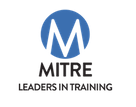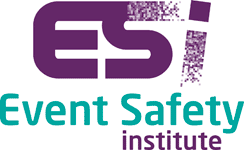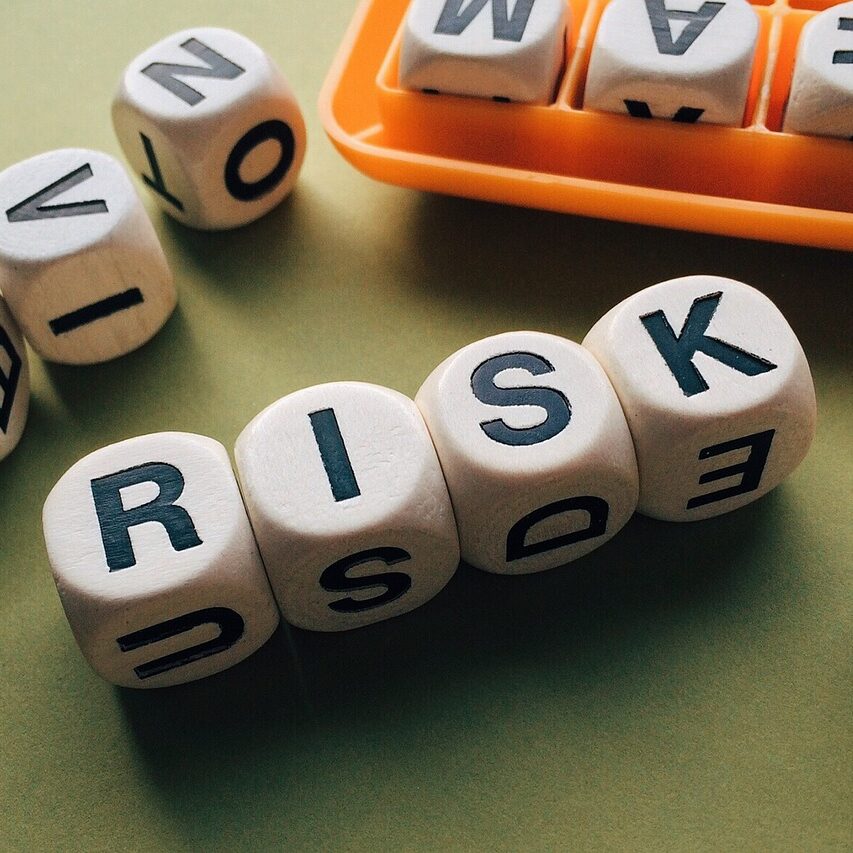University Advanced Diploma Counter-Terrorism Risk Management
This course provides you with an awareness of relevant industry practice and guidance at events or sites and reviews the need for effective and proportionate Counter Terrorism Risk Management whilst linking it to appropriate Health and Safety Management and industry practice set out in the Purple Guide and Green Guides.
You will be introduced to the intricacies of the legal framework and requirements of assessing Terrorism Risk and detail the current Terrorist Threat picture within the UK. You will consider the developing nature of terrorist attack methodology and the appetite for risk management in this area and be provided with proven command and control solutions and auditable methodologies for delivering a security report which contains vulnerability, mitigation with rationale, residual risk and contingencies.


Emergency Planning College courses
The Emergency Planning College (EPC) delivers Cabinet Office–approved emergency planning and crisis management training. Managed by Serco, we are positioned at the heart of Government, within the Civil Contingencies Secretariat (CCS) of the Cabinet Office. Our highly experienced industry leading experts provide a wide range of dynamic and diverse training courses, seminars and workshops for public and private sector clients across the UK and overseas. We also offer real-time simulation exercises enabling delegates to fully test their emergency plans while gaining invaluable ‘real-life’ experience in dealing with a major incident. We provide a central forum for knowledge-sharing and focus on multi-agency working, disseminating best practice nationally and internationally to enhance worldwide resilience against natural disasters, major incidents and malicious attack. EPC Contract Services Director, Ronnie Coutts, describes the work of the College, and introduces our approach to the services we deliver.Introduction to Crowd Safety Management
Get the knowledge, confidence, skills in planning for and managing safe, secure and successful crowd events. If you are starting out or if you are experienced and require formal training, this 2-day course is the one for you. This will give you the best possible introduction. It will provide you the tools to improve your plans and manage more safely, securely and effectively, whatever your event or location. It includes some of the most significant topics such as; key legislation and guidance requirements, risk management, crowd analysis, crowd safety planning and contingency planning.Public Safety at Festivals and Mass Gatherings
Events can vary in size from one venue to another, which is why the risks involved can also vary dramatically. Pre-planning for an event will significantly influence the success of the event and the way in which a major incident should be handled. This will make sure you don’t miss anything vital from your planning. It covers how to produce a qualitative risk assessment of a site, evaluation of safety and security features, planning and stakeholder requirements.Safety at Sporting Venues
Never has it been more important to ensure safety, security and success of events at sporting venues. In partnership with the Sports Ground Safety Authority (SGSA) and our wider partners in government and professional bodies, this gives the latest advice to improve safety and security at sporting venues for any event. Ensuring a risk based approach is a critical activity which is embedded throughout this course. From the public travelling to the venue, enjoying the event and getting home again. We consider normal and emergency conditions at every phase to ensure good planning and management to ensure a successful event.Spectator Safety Management Options
For Safety Officers there is a requirement to hold a Level 4 NVQ in Spectator Safety Management, as suggested in the Safety at Sports Grounds Guidance (Green Guide). A National Vocational Qualification (NVQ) is a qualification that recognises the competence of a person in a work situation. Unlike traditional qualifications that rely on teaching and examinations, NVQs use performance on the job as a basis for assessment. The following options are designed to support the diverse needs of individuals wishing to obtain this qualification. Please note travel and accommodation cost for assessments will need to be paid if you live outside of Great Britain. Please contact us to discuss further.Working in an Event Control
The event is aimed at staff and supervisors who, on a permanent or temporary basis, are required to work in an event control. The programme will examine both theory and practice of the event control room, using exercises based on real scenarios to illustrate learning. It is vital that, as well as utilizing suitable information management systems, a control room also maintains an audit trail to include planning arrangements, incidents and actions taken deployment of personnel and decisions taken. You will have an opportunity to explore these issues as well as considering appropriate difficulties layout equipping and staffing of control rooms in order to apply such practices to your own working environment. The course will cover the skills, knowledge and competencies in order to ensure that you will be an effective member of a control room team which is an integral element of the safety management operation.
Crowd Safety Management Diploma
Crowd Safety Training are proud to announce our latest and currently the ONLY Level 5 training package for the Crowd Safety Industry: The Crowd Safety Management Diploma. The Crowd Safety Management Diploma includes three qualifications:- – The Level 4 NVQ Diploma in Spectator Safety
- – The Level 5 Diploma in Management
- – The Level 5 Diploma in Crowd Science & Risk Analysis

Crowded Places and Public Safety Management MSc
Students will analyse the features that make for best-practice planning, policy and process, so that they can go on to devise effective crowded places arrangements of their own. The programme covers important legal and political frameworks of the crowd safety and emergency management sector.
The course will also help provide an understanding of the issues that underline many problems faced by crowd safety management practitioners, such as multi-agency cooperation and coordination and business continuity. We will look at how these issues may be addressed, in practice with a view to enhancing the effectiveness of integrated emergency management and organisational resilience. You will also be required to carry out an independent piece of research of your choosing, which seeks to develop skills in personal organisation, research and critical thinking, as well as advancing your knowledge in the subject area.Short courses
- Business Continuity and Crisis Management
- Community Preparedness, Recovery and Resilience
- Disaster Interventions, Evaluation and Learning
- Disaster Risk, Resilience, Adaptation and Sustainability
- Emergency Planning and Preparedness
- Emergency Planning for Public Safety and Security
- Humanitarian Principles, Preparedness and Response
- Integrated Emergency Management: Policy and Issues
- Managing Crowded Places
- Public Safety and Security
- Resilience, Security and Emerging Technologies
- Risk, Incident and Leadership
- Training and Exercise Design and Delivery
Postgraduate certificates
PG Cert Disaster, Risk and Resilience
Aimed at those who work internationally within the disaster response, humanitarian, disaster risk reduction, climate adaptation and development sectors and wish to synthesise and develop their knowledge. The certificate seeks to provide the knowledge and skills needed to ensure interventions under any of these banners meet the long term needs of the communities we work with. Our students come to us from NGO’s, government agencies, health, the military, and engineering and specialist response organisations.- Disaster Risk, Resilience, Adaptation and Sustainability
- Humanitarian Principles, Preparedness and Response
- Community Preparedness, Recovery and Resilience
- Disaster Interventions, Evaluation and Learning
PG Cert Crowded Places and Public Safety Management
Aimed at those who work or are intending to work in sector and wish to synthesise knowledge of risks and threats in public places, planning and management techniques to maximise public safety, and how to work effectively with other agencies to ensure security. Our students come to us from emergency services and events safety and security organisations working for public safety at mass gatherings, festivals, sporting events and concert venues.- Managing Crowded Places
- Public Safety and Security
- Risk, Incidents and Leadership
- Emergency Planning for Public Safety and Security
PG Cert Emergency Preparedness and Management
Aimed at those who wish to develop and formalise their knowledge and skills in assessing risks, designing preparedness arrangements, co-ordinating and developing plans, testing and training emergency response capabilities. Our students come to us from emergency services, government, civil defence, hazardous industries, utility companies and the military.- Emergency Planning and Preparedness
- Integrated Emergency Management: Policy and Issues
- Risk, Incident and Leadership
- Training and Exercise Design and Delivery
PG Cert Emergency and Incident Management
Aimed at those who wish to develop and formalise their knowledge and skills in incident management and command, incident readership, interagency co-ordination decision making and interoperability. The course links emergency preparedness capabilities and community resilience with incident response in order that those with a tactical and strategic incident management role can consider the wider impacts of their actions.- Risk, Incident and Leadership
- Integrated Emergency Management: Policy and Issues
- Emergency Planning and Preparedness
- Community Preparedness, Recovery and Resilience
PG Cert Crisis, Security and Resilience
Designed for those who have a role in organisational resilience. We critically evaluate traditional approaches to business continuity and help you identify effective approaches to managing emerging risks and security threats in an uncertain world.- Business Continuity and Crisis Management
- Risk, Incident and Leadership
- Training and Exercise Design and Delivery
- Resilience, Security and Emerging Technologies

Disaster Management and Emergency Planning BSc (Hons)
Time matters in a crisis. Thorough planning, multi-agency coordination and clear communication can save lives, limit disruption and reduce the long-term economic effects of disasters. This course blends academic study with experiential learning – best practice, real-life case studies, fieldtrips and crises simulations – to equip you with the skills and knowledge to effectively manage disaster relief and response, as well as advance prevention and preparedness. Disaster management has been taught at Coventry for over 20 years. Our curriculum is systematically mapped against the current National Occupational Standards for Civil Contingencies, developed by UK Skills for Justice in association with largest professional society, The Emergency Planning Society. Our courses also benefit from a longstanding partnership with the Outreach Organisation, whose specialist training and facilities focus on rope and water rescue technical skills, Urban Search and Rescue (USAR), Casualty Management and Search Management for the emergency services.Disaster Management and Emergency Planning BSc (Hons)
Local, regional, national and international organisations are all involved in mounting a humanitarian response to disasters; each will have a prepared disaster management plan, covering prevention, preparedness, relief and recovery.
Additionally, in the UK, most major public and private organisations – educational establishments, the National Health Service (NHS), emergency services, local and central government, HM Armed Forces – have a crisis management or major incident plan, covering appropriate risk assessment and emergency responses. They all need professionals to manage these plans and, more importantly, execute them when required. This course aims to give you the knowledge to pursue such a career in emergency planning and management.International Disaster Management BSc (Hons)
As the world faces an increasing number of natural and man-made disasters, the need for effective disaster management has become a global priority. This course aims to develop your understanding of the causes of disasters, how to minimise their impact and develop long-term community resilience in both developed and less developed countries. It brings to life the challenges of managing crises when they happen, anywhere in the world. Disaster management has been taught at Coventry University for over 20 years, so we have a wealth of experience. Our curriculum is systematically mapped against the current National Occupational Standards for Civil Contingencies, developed by UK Skills for Justice in association with the Emergency Planning Society. Our courses can also benefit from a longstanding partnership with the Outreach Organisation, whose specialist training and facilities focus on teambuilding and field skills, including Urban Search and Rescue (USAR), Casualty Management and Search Management for the emergency services.Disaster Management and Resilience MSc
If you are interested in careers focused on disaster intervention or are a current practitioner seeking to update your knowledge in disaster management, humanitarian assistance, capacity building and disaster risk reduction, this specialist Master’s course encompasses up-to-date thinking in disaster theory, management policy, strategy and practice in the in the developing and developed world. Disaster management has been taught at Coventry for over 20 years and this postgraduate course covers the advanced research skills, knowledge and management expertise to deal effectively with future disasters, encouraging you to adopt a strategic and holistic perspective. It aims to develop your expertise and capacity to identify, analyse, interpret and manage risk and disaster issues successfully focusing on less economically developed contexts across the world, focusing on sustainable solutions and building community resilience.Emergency Management and Resilience MSc
This programme is designed to enable you to develop the necessary knowledge and practical skills needed to identify, critically analyse, assess and successfully manage a range of emergencies; operating confidently in policy development, strategy implementation, and response and recovery management.
MSc Crowd Safety and Risk Analysis
This new course has been developed by renowned and key figures within the event industry, crowd safety and risk analysis experts, working with the University event management team. This course has been developed for the growing number of people currently working within the events industry that have key roles in the planning and management of crowds; additionally the course is suitable for those wishing to make a career shift into this emerging field. The aim of the course is to study “Crowd safety and risk analysis that develop robust crowd management plans for major events”.
University Diploma in Events Safety Management
The Diploma in Events Safety Management is ideal for practising event professionals who are responsible for health and safety or customer protection at festivals, sporting events, public gatherings, commercial and not for profit events, as well as large-scale and international association meetings.
International Award in Spectator Safety
Stewarding at Spectator Events
- England
- Wales
- Scotland
- Northern Ireland
Spectator Safety
The Spectator Safety qualifications provide the required knowledge and experience to work as a steward in sports grounds, at music festivals, marches and any other events that require spectator safety. The qualifications fulfil the requirements for stewarding set out by the government in the Green Guide. These qualifications also can form part of Spectator Safety apprenticeship frameworks at levels 2 and 3. This level will suit you if you already work, or want to work, in stewarding, spectator events, security and volunteering. The Level 2 certificate is comprised of mandatory units, including:- Prepare for spectator events
- Deal with accidents and emergencies
- Control the entry, exit and movement of people at spectator events
- Monitor spectators and deal with crowd problems.
- Prepare stewards and venues for spectator events (mandatory)
- Deal with accidents and emergencies (mandatory)
- Support the efficient use of resources (optional)
- Manage information for action (optional)
- Control and detain people at a spectator event for action by the police (optional).
- Develop productive working relationships with colleagues and stakeholders (mandatory)
- Assist the organisation to develop and implement policies (mandatory)
- Provide learning opportunities for colleagues (mandatory)
- Facilitate meetings (optional)
- Implement quality assurance systems (optional)
- Recruit, select and keep colleagues (optional).
Occupational Health and Safety

Level 5 Diploma in Crowd Science and Risk Analysis
Introduction If you are in charge of people in public spaces, you need to understand the principles and applications of Crowd Science, specifically crowd risk analysis and safety engineering. This courses teaches event professionals the principles and applications of Crowd Science and draws on over the twenty years of extensive research and project experience from around the world.NCFE Level 4 NVQ Diploma in Spectator Safety
The Spectator Safety qualifications provide the knowledge and experience needed to work as a steward in sports grounds, at music venues, festivals, marches and any other events which require spectator safety. Stewards must also fulfil the regulations and requirements for stewarding set out by the government in theGuide to Safety at Sports Grounds (The Green Guide).- Manage your own resources and professional development
- Develop productive working relationships with colleagues and stakeholders
- Manage the use of physical resources
- Assist the organisation to develop and implement policies
- Provide information to support decision making
- Provide learning opportunities for colleagues
- Encourage innovation in own area of responsibility
- Allocate and monitor the progress and quality of work in own area of responsibility
- Facilitate meetings
- Provide advice and support for the development and implementation of quality policies
- Implement quality assurance systems
- Monitor compliance with quality systems
Level 2 NVQ Certificate in Spectator Safety
- Prepare for spectator events
- Control the entry, exit and movement of people at spectator events
- Monitor spectators and deal with crowd problems
- Support the work of the team and organisation
- Help to manage conflict
- Deal with accidents and emergencies.
Level 3 NVQ Certificate in Spectator Safety (RQF)

SPECTATOR SAFETY
Mitre delivers spectator safety and crowd safety management training using interactive and practical tutoring
Spectator Safety
This innovative, multi-device e-learning course provides learners with the knowledge they need to go on to achieve a level 2 understanding stewarding at spectator events qualification in a fun and interactive way. Learners successfully completing this course and its subsequent assessment will achieve the knowledge components of the Highfield Level 2 Award in Understanding Stewarding at Spectator Events (RQF). This qualification is awarded on the successful completion and assessment of the course.Why choose a Highfield course?
Highfield e-learning makes the most complex of subjects easier to digest through media and content-rich exercises that motivate and engage. What makes us different is that our e-learning uses:- interactive exercises/gaming
- media-rich content
- interactive 3D scenarios
- content provided by market leading experts
- relevant photography and illustrations
- multi-generational content and style
- and much more

SVQ 2 Spectator Safety Stewarding at SCQF level 5
The Scottish Vocational Qualification (SVQ 2) in Spectator Safety Stewarding at SCQF level 5 allows candidates to demonstrate competence in job-related skills in their particular area of work and expertise. This qualification covers areas such as preparing for spectator events, controlling the movement of spectators and dealing with crowd issues at an event. It also includes helping to manage conflict, dealing with incidents and working with others to improve customer service. This qualification has been designed in partnership/jointly awarded with the sector skills council SkillsActive to ensure relevance to the sector. SVQs are based on National Occupational Standards (NOS). SQA works in partnership with other organisations to ensure that the NOS are relevant to the current and future needs of Scottish industries.
Online Steward Spectator Safety Program
Stewards play a vital role in the sports and entertainment industry. Without them, it would be impossible for millions of people to enjoy themselves every week. Yet this occupation is coming under far greater regulation than ever and as a result, training is even more important. This online course is appropriate for stewards at any event including sporting events like football, rugby, cricket, horse racing and motor sports as well as events like concerts, festivals, parades and carnivals. This online course in Spectator Safety is designed for stewards working as part of a wider team and provides the underpinning knowledge requirements for the NVQ level 2 in Spectator Safety.-
- Prepare for spectator events
-
- Control the entry, exit and movement of people at spectator events
-
- Monitor spectators and deal with crowd problems
-
- Help manage conflict
-
- Contribute to the work of your team
-
- Deal with accidents and emergencies
- Control and detain people at a spectator event for action by the police


Crowd Risk Analysis and Crowd Safety Training
Introduction to Crowd Safety and Risk Analysis
eLearning
Train the Trainer Course

Event and Crowd Safety “Pick-&-mix” Courses!
Pick 5 topics for a 1-day course, 10 topics for a 2/3-day course
-
Basic legal obligations of organisers including 3rd party impact on communities. Obviously covering H&S@W as well as other principle legislation
-
A talk-through of the available guidance
-
Culpability of organisers and other agencies
-
The role of SAG’s in supporting events to be safer
-
Basic crowd dynamics, densities and critical levels along with the impact of getting it wrong
-
Basic site design, how easy it is to get it wrong
-
Some basic crowd psychologies including emergency behaviours
-
Understanding event roles: Stewards versus SIA versus volunteers (training and powers, CSAS etc)
-
Planning principals, Risk Assessment and ALARP principles
-
Barriers and their appropriate use (by showing inappropriate use).
-
TDS and their dangers, what to look for
-
Weather monitoring and severe weather impacts
-
Cancellation considerations
-
Contingency and Emergency Planning
-
Evacuations
-
The effect of CT measures on wider event safety

Training
SEAA has positioned itself as an innovator in the field of Learning and Development, designing and delivering training solutions that target the specific needs of companies and individuals. Currently we are training in the fields of:- Event operations
- Crowd Management
- Crowd Risk management
- Spectator Safety
- 1st Aid
- Health and Safety

INTERNATIONAL TRAINING CENTRE FOR CROWD & SAFETY MANAGEMENT
Education and qualification consists of three different areas: seminars, workshops, trainings.





